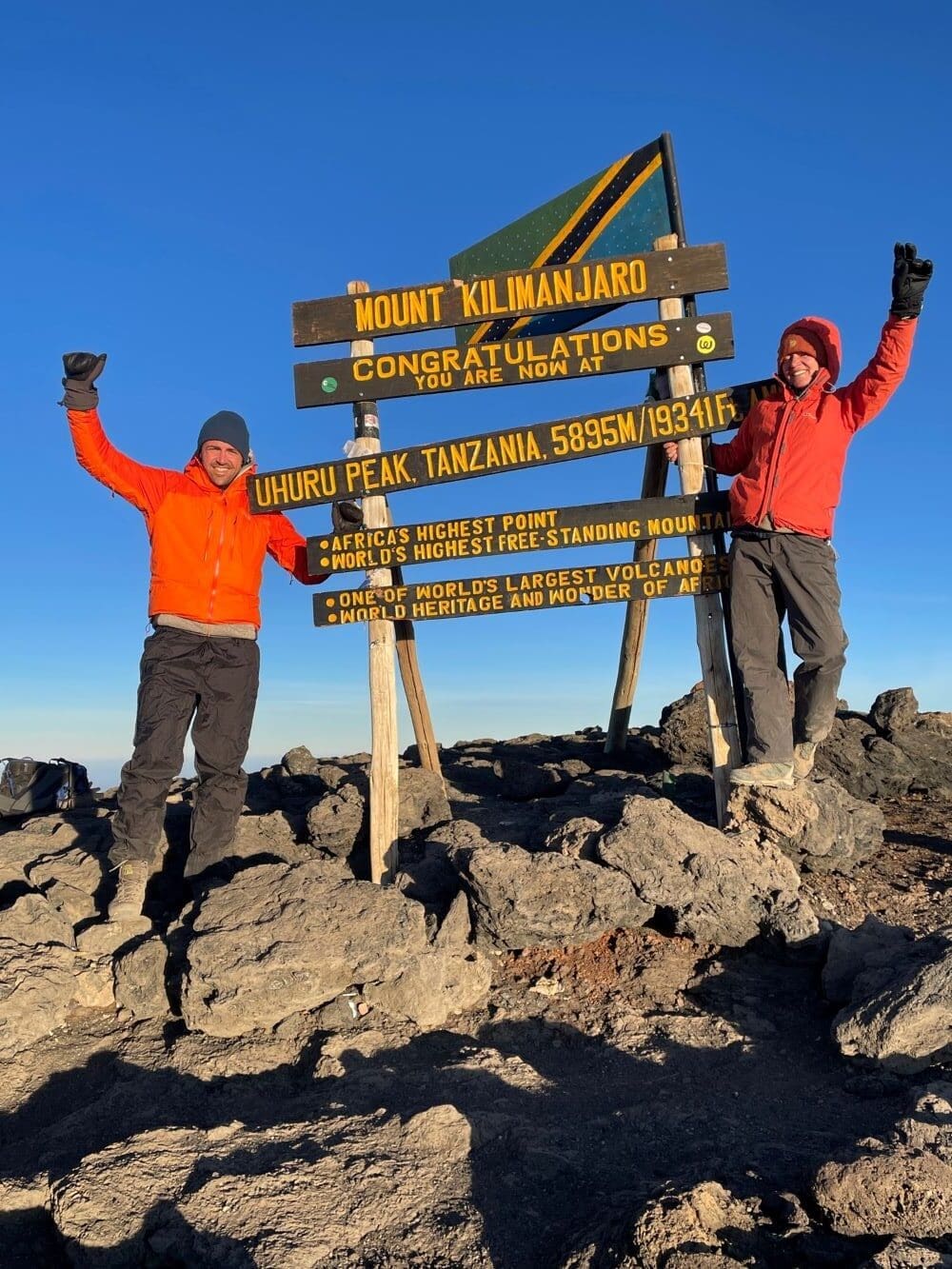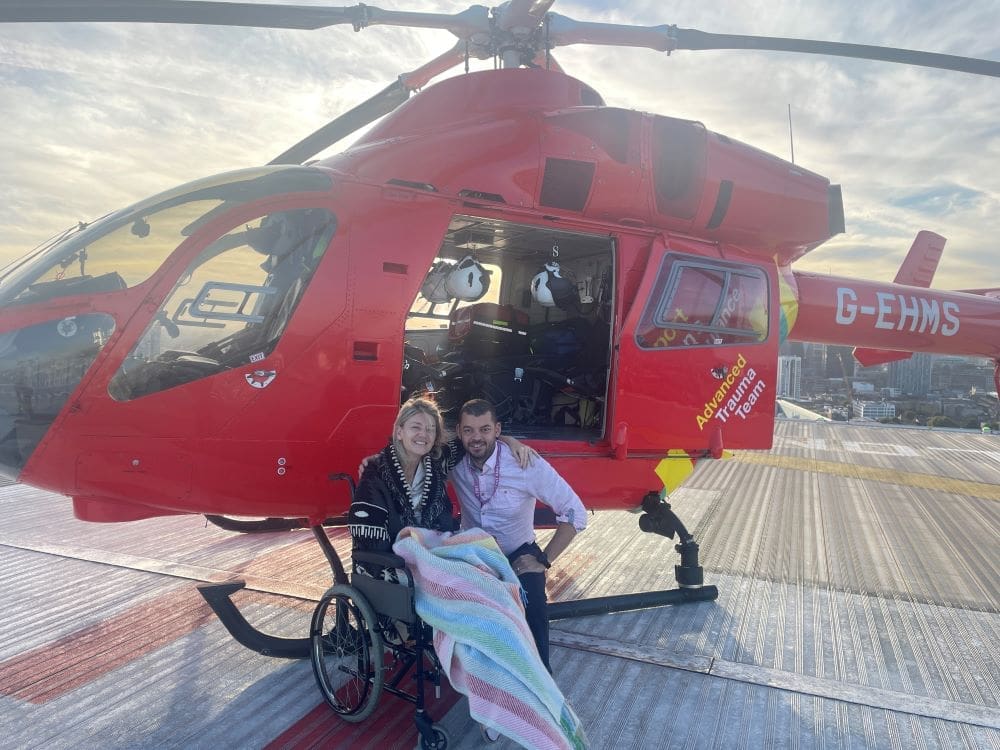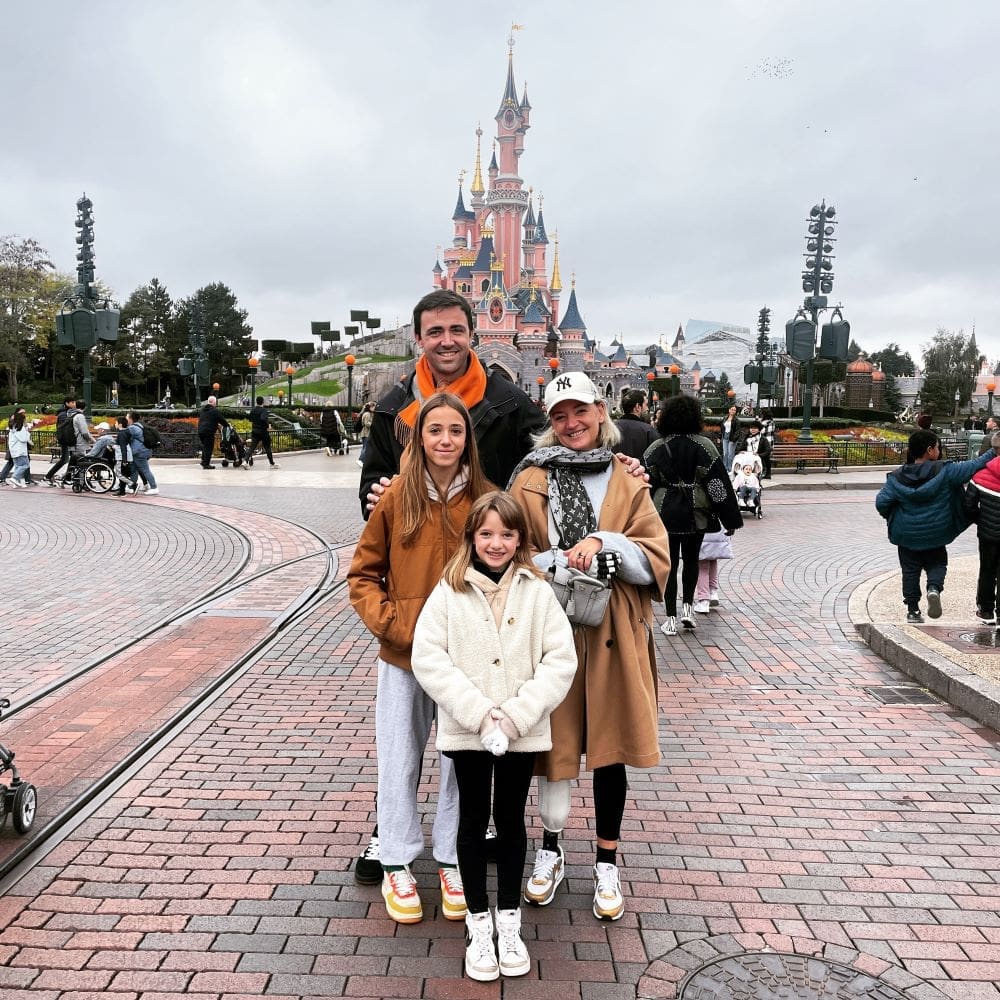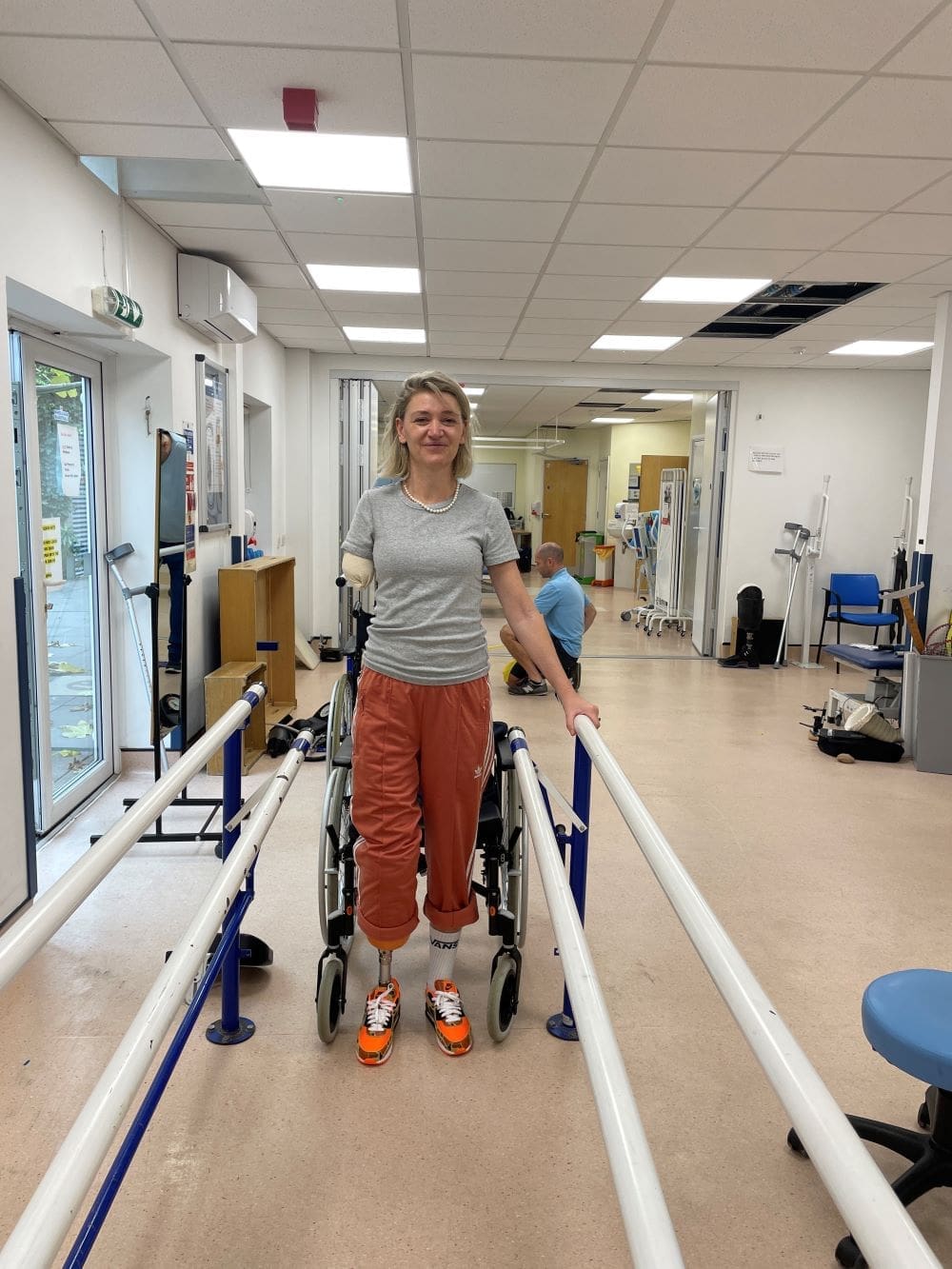Angela McKane: Sarah, hi, it is lovely to meet you today! Thank you so much for agreeing to speak with me.
Sarah de Lagarde: Thank you. Nice to meet you, too.
AM: I like your accent. I’m trying to place where you are from …
SDL: Ah, that’ll be because I have a German father and a Dutch mother; however, I was born and raised in France! Additionally, I have an English family who comes from Cornwall.
Growing up in the South of France, and yet with two parents who weren’t French, I was aware from a young age that I stood out – I had white-blonde hair for a start! When I was around 14, we moved to Germany and, like many young women, as I entered the teenage years, I struggled a lot with issues around identity. You know, those feelings of searching for a sense of belonging. Growing up in the South of France had been a very rural environment and then here I was being thrust into the big city of Frankfurt!
AM: Yes, I think many of us encounter those feelings of uncertainty and especially in adolescence when there is already a lot of change going on.
SDL: Exactly – and for me, eventually, I simply stopped trying to belong. I felt like I had no specific national identity, per se – though perhaps European – and I began to use this to my advantage in terms of developing an ability to adapt. Even now when I speak in a variety of different languages, people often tell me that they can’t quite place my accent, or that I have a very smooth lilt. I do think that developing an ability to adapt to new and different situations and environments when I was younger, coupled with getting comfortable with being different, gave me some of the tools to withstand the significant blow that was to come my way further down the line.
But, in the meantime, I was a teenager, and I was free, and at the age of 17, along with my best friend, I moved back to France to study. We really felt like the world was our oyster, but we also worked hard, as we wanted to get good grades. My parents had instilled in me the value of hard work, and a sense of civic duty as well. I understood that work was not just about making money, but was also about supporting society with taxes and contributing to society in some way, as well as being able to provide for yourself and your family. So, to fund my university fees, I worked throughout the holidays, and even younger. From the age of 14, if I wanted Levi’s jeans, I worked for them!
I worked in a restaurant. It was hard work and sometimes I would have to deal with irate or difficult customers, but I do think that was also character building.
After university, where I had studied business administration and languages, I went back to Germany and worked for JP Morgan for a while. I then did a one-year postgrad at a business school which involved six months in Paris and six months in London, and it was excellent as it gave me a whole new network as well. I also met my husband during that time, and that was the catalyst for us to decide to stay in London – and here we are now, almost 20 years later! Oh, and he is French, but he comes from a similar multilingual background. We talk to each other both in English and French.
AM: Wonderful, so your children are likely bilingual then?
SDL: Indeed, yes. We have a nine-year-old daughter and a 13-year-old.
AM: Did you stay in financial services in London?
SDL: After a brief stint in advertising, I did, yes. I worked for a boutique investment manager called F&C and this was my first foray into Asset Management. I really liked the financial research that the analysts were doing, and I could see how individuals’ personal investments were growing through the advice of the portfolio managers – I really enjoyed that and particularly liked working in communications. I moved to BNY Mellon’s asset management side of the business. I had my first daughter during that time, and then I moved to Schroders, and I spent four years there, working in crisis and change communications. I am convinced that developing this expertise in staying professional during a crisis also gave me the tools to stay calm during the significant personal crisis that was yet to come. I also loved that this type of role gave me access to seeing the real people behind the corporate hierarchy.
After leaving Schroders, I took a six-month break and advised fast moving consumer goods start-ups on strategy who would have a very limited budget and no marketing dollars!
I found that with limited resources, and limited time to make something happen, decision making needs to be fast – otherwise, your idea will die. This learning also equipped me with the ability to think fast, something I also called upon during the incident that was yet to arise.
After this six-month break, I got hired to build a communications function at Janus Henderson (a global asset manager), as it had recently been through a merger of two equally sized companies coming together. This really appealed to me as it was a scenario I hadn’t experienced before, and this was especially true as the COVID pandemic also hit! I became the Global Head of Communications and recruited my team, and I spent four years developing all of the processes, from how to write press releases through to designing all the change comms and crisis comms, and how to build the brand.
Then, in the summer of 2022, my husband and I climbed Kilimanjaro. As we embarked upon this, I thought to myself, I’ll walk as far as I can and see what happens. My husband is six foot four and goes to the gym every second day, so he was confident – and I was less so! But what actually happened was that I was the one who walked all the way up and reached the summit! My husband nearly didn’t make it to the top because he had altitude sickness, and he was deprived of oxygen and had hypothermia. It was hard, and I was the only woman on the team – I recall on the way back down I said, “That was hard, but it’s not as hard as childbirth.” I stand by that – women are so strong in terms of endurance and resilience. I had to be. Regardless of whether you have gone through childbirth or not, I think the fact that we women are designed for it gives us some reserves we can call upon when we need to endure something.
So, there I was, August 2022, and feeling literally on top of the world. I felt invincible. Exactly one month later, I was run over by two trains and my life was turned upside down.
 AM: Wow. This does make you think. The high-risk activity is the one you would be putting in all the preparation for, and then in reality the big risk to your life arrived on what should have been a regular day.
AM: Wow. This does make you think. The high-risk activity is the one you would be putting in all the preparation for, and then in reality the big risk to your life arrived on what should have been a regular day.
SDL: Yes, you’d expect something terrible to happen whilst you are doing something extraordinary. The day of the incident was so mundane! It was a Friday night, and I had been working late on a project I needed to get over the line. I knew I wouldn’t be able to work over the weekend as I was supposed to be going to Germany for my dad’s 70th. I was a bit tired and run down because I’d had COVID the week before and the weather was awful – constant rain – and so I couldn’t easily hail a cab. So, I hopped onto the tube, which should have got me home faster. Instead, it took me two and a half months to get home.
AM: So, you fell asleep on the tube train?
SDL: Yes, which meant the train went to the stop at the end of the line, when it is then above ground. I woke up and exited the train, but then realized that the same train would go back again and into the city. So, I turned around to board the train again. However, due to the rain, the platform surface was wet and uneven. I slipped and fell against the stationary train. I broke my nose, I broke my teeth, I hit my jaw and fell backwards into the gap between the train and the platform. I remember shouting out in horror, but nobody heard me.
I was really struggling to try to get myself up or find something to grab on to. I was wearing a bright pink coat and I have white, blonde hair, so if someone had only looked, I would have been so visible. Instead, I heard the train start up, and as it drove off it crushed my right arm above the elbow. There was an extreme flash of searing hot pain, like an explosion in your head. And then, somehow, like a switch that switched off the pain in my head and it just felt totally numb.
I screamed for help: “Somebody, help me please; my name is Sarah de Lagarde and I don’t want to die!” I screamed that over and over and over again. And yet there was nobody watching the CCTV live, nobody on the platform heard me. I somehow managed to retrieve my phone I had lost in the fall; its neon casing was kind of glowing in the dark. I thought, if only I can grab it, I can call for help. So, I shuffled over and managed to pick it up with my foot, but I couldn’t unlock the phone; it wouldn’t recognize my injured face. I tried to type in the code but my fingers on my left hand were wet, the phone was wet, nothing would work. I started screaming out again and at that point I heard a second train approaching the station. Because I had moved I was now on the railway track in between the tracks and the train just came charging toward me with these enormous black wheels. I was flattening myself into the ground as much as I could, knowing the train was going to literally run over me. It did – and, in the process, it amputated my right leg below the knee. I was still by some miracle alive, and so I continued to scream and eventually someone heard me. Despite that, and despite the level of emergency, it took quite some time before they called 999. I’m not sure if they panicked, but, candidly, it felt like they faffed around when I needed them most.
 AM: I’m so sorry to hear that. It is truly amazing that you survived this. When someone did finally get the emergency services to you, did they [need to] have a train get out of the way at that point in order to reach you?
AM: I’m so sorry to hear that. It is truly amazing that you survived this. When someone did finally get the emergency services to you, did they [need to] have a train get out of the way at that point in order to reach you?
SDL: Well, the second train had stopped on top of me. The London air ambulance arrived to help me, and it was made harder for them because they had to find the person responsible for turning off the power line and then they had to slide me 30 meters underneath the train to the front to get me out and onto the platform. Once I was finally out, I got some pain relief; up until then, I had been on the tracks undetected for 15 minutes, and it took a further hour from the point where someone discovered me to get me the help I needed and get me out. It’s not great.
AM: It’s absolutely horrendous.
SDL: Yes. What helped me was, as I mentioned earlier, my ability to adapt and to endure. I do think the fact that I’d climbed Kilimanjaro only a month before helped. I was in good physical shape and I had had training in keeping calm and regulating my breathing to slow my heart rate. I think this is why I didn’t bleed out. I thought of my family, and particularly my children’s faces were very visible to me, and they had a message for me saying I was meant to come home. That made me want to survive, and get through a moment where I really felt that I was between life and death. Two thoughts kept going through my head: 1) Sarah de Lagarde, you need to survive this, and 2) You may be here for some time.
 The London air ambulance really took care of me. In fact, they were amazing and I’ve met them a few times since. They saved my life. It turns out the London air ambulance is a charity; it has two helicopters and a fairly small crew. They fly out four or five times a day and they urgently need money to replace their fleet of helicopters, each of which has a fully stocked out operating theater on board, as well as various medicines, of course. They once did an open heart surgery on the road! It’s a service we need.
The London air ambulance really took care of me. In fact, they were amazing and I’ve met them a few times since. They saved my life. It turns out the London air ambulance is a charity; it has two helicopters and a fairly small crew. They fly out four or five times a day and they urgently need money to replace their fleet of helicopters, each of which has a fully stocked out operating theater on board, as well as various medicines, of course. They once did an open heart surgery on the road! It’s a service we need.
The paramedics said I was very pale but I was also talking to them. They said I very politely asked if they could please hurry up, as I felt sure I was dying! I also asked to speak with my husband, but my phone was now out of battery. I couldn’t remember his number off by heart, and that was really frustrating me as I lay there.
AM: Would he have been wondering where you were?
SDL: No, he had fallen asleep. He knew I was working late and there was no reason to think anything was amiss. He had tried to call but, when it went to voicemail, he didn’t think anything of it as he assumed I would be taking the tube. In fact, I was on my way to the Royal London Hospital! They rushed me into theater and I had to sign a consent form stating that I understood my limbs were no longer viable and needed urgent amputation. I had to sign with my left hand, and then they operated on me for a long time – something like 15 hours. Once brought round from the operation I saw my husband again the next evening. He had been pacing the floor in the hospital unsure whether I was going to make it.
I was in hospital for over two months and I do remember one night my daughter called me In tears and said she felt like I would never come home. I made her a promise that night that I would be home before Christmas. This was in the beginning of October and at that point I still didn’t know if I would be able to walk or get out of bed. But it focused my mind. I thought, this is now my goal. I am going to get stronger, my wounds will heal, and I am going to get out of this bed. I went to a rehab center, and the very next week I got fitted with a prosthetic leg. I learned how to walk again and I was home on December 2nd– three weeks before Christmas.
Since then, I learned how to use my left hand to use my phone, to type, even now to paint and draw, though it ends up quite a different style to the pictures I used to create! I have also managed to procure a bionic arm, powered by artificial intelligence. Prosthetics are amazing but it’s not as simple as you get them and off you go. They can show signs of wear and tear. If you gain or lose weight, they can stop fitting properly. There can be a long wait to get them on the National Health Service (NHS) and, if you wait too long, you reduce the likelihood of a successful prosthetic (it’s best to learn to use them soon after losing the original limb). A reduced success rate means the NHS is less likely to fund them, so it becomes a vicious circle.
I was also back to work four months after this all happened – so by February.
 AM: Only four months!
AM: Only four months!
SDL: Yes. Well, I needed the income; those prosthetics are expensive. Additionally, in my darkest hour, my colleagues really showed up for me. It was so heartwarming! I think when you work in comms, you have this bird’s eye view across the organization and lots of people know you. We’re not a huge company – around 2,500 employees – but people from all corners of the world were sending me messages and cards, even cookies! It says a lot about the culture and the working environment. I wanted to go back! When people are cheering you on, you can get through trying times.
Online, on social media, I’ve had a lot of support as well – especially from women. I do get my fair share of trolls. Some who say all kinds of nonsense like I must have been drunk to fall, and it was all my fault. Some of the comments get really cruel. I try to ignore them, but I do wonder what drives people to do that.
I worry about growing older and not having the financial means to live in a dignified manner. I don’t want anyone else to fall between the train and the platform. Processes and safety protocols and what to do in an emergency are fundamental, and in other cities like Toronto there are retrofits to eliminate the gap between subway trains and platforms. This terrible incident has happened to me but maybe, as a result, this could be used as a catalyst to make the transport system safer for all Londoners and visitors to the city.
AM: Making our cities worldwide more livable with safe and desirable transport solutions is an area of passion for me as well. Do you have one final message you would like to leave for our readers?
SDL: My one final take away, and what I am teaching my kids, is that we can find we are so much stronger than we think we are when we are tested. I find that quite reassuring to know. As humans, our ability to adapt is really quite incredible. I have to pre-empt things now, and think things through in advance in a way that I didn’t have to before, but I’m learning how. And I’m proud of myself for the progress I have made already.
AM: It sounds like your family and colleagues are rightly proud of you, too. Thank you, Sarah.
*Editor’s note: This will be Angela McKane’s final Disabilities column in her interview series; however, going forward, she will be contributing articles on areas of interest in the changing global energy mix.
Photos courtesy of Sarah de Lagarde.
Angela McKane works with early-stage startups focused on developing solutions across the defense, transport and energy sectors. Prior to this McKane was VP Technology Insights at bp, where she grew and led a global team for over a decade, delivering actionable insights on emerging technology innovations and investment opportunities to teams across the Group. Earlier in her career, McKane worked at Transport for London (“TfL”) and, prior to that, she worked at her alma mater, the University of Glasgow. McKane is a regular speaker at industry leading conferences including Gastech, CERAweek and more. Connect with McKane onLinkedIn.






